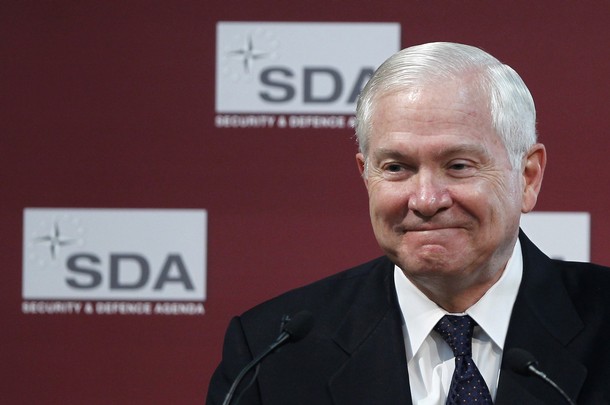
From Jim Garamone, American Forces Press Service: “I am the latest in a string of U.S. defense secretaries who have urged allies privately and publicly, often with exasperation, to meet agreed-upon NATO benchmarks for defense spending,” Gates said. “However, fiscal, political and demographic realities make this unlikely to happen any time soon, as even military stalwarts like the [United Kingdom] have been forced to ratchet back with major cuts to force structure.”
Today, just five of the 28 NATO allies – the United States, the United Kingdom, France, Greece and Albania – exceed the agreed-upon 2 percent of gross domestic product spending on defense. And that probably won’t change, Gates said.
“The relevant challenge for us today, therefore, is no longer the total level of defense spending by allies, but how these limited – and dwindling – resources are allocated, and for what priorities,” he said. “For example, though some smaller NATO members have modestly sized and funded militaries that do not meet the 2 percent threshold, several of these allies have managed to punch well above their weight because of the way they use the resources they have.”
For example, he said, Norway and Denmark have provided 12 percent of allied strike aircraft in the Libya operation, yet have struck about one-third of the targets, and Belgium and Canada also are making major contributions to the strike mission.
“These countries have, with their constrained resources, found ways to do the training, buy the equipment and field the platforms necessary to make a credible military contribution,” Gates said.
But they are the exceptions, he added, as too many allies have been unwilling to fundamentally change how they set priorities and allocate resources.
“The non-U.S. NATO members collectively spend more than 300 billion U.S. dollars on defense annually, which, if allocated wisely and strategically, could buy a significant amount of usable military capability,” Gates said. “Instead, the results are significantly less than the sum of the parts.”
This, he added, not only has shortchanged current operations, but also bodes ill for ensuring NATO has the key common alliance capabilities of the future. Member states, he added, must look at new ways to boost combat capabilities.
“While it is clear NATO members should do more to pool military assets, such ‘Smart Defense’ initiatives are not a panacea,” he said. “In the final analysis, there is no substitute for nations providing the resources necessary to have the military capability the alliance needs when faced with a security challenge. Ultimately, nations must be responsible for their fair share of the common defense.” (photo: Reuters)
Image: reuters%206%2010%2011%20Robert%20Gates%20SDA2.jpg
